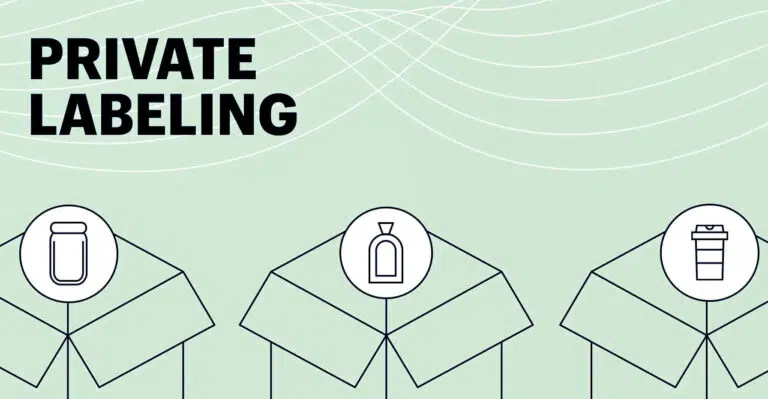
The initial investment required for someone to start your own cosmetics brand can be a roadblock, but what if there was a way around that?
The concept of “private label cosmetics,” though very popular among business owners and cosmetics brands, is one of the best-kept industry secrets. If you’re considering opening your own cosmetics beauty care line on a budget but need to know where to begin, this guide is all you need to get started.
Let’s start with the basics.
What are private-label cosmetics?
Private-label cosmetics are cosmetic products formulated, created, and contract manufactured by third-party specialists and sold under a different company’s name. Companies that need more resources to bring their vision to life can outsource the research and manufacturing to production facilities.
Private labeling is ideal for skin care brands that want to take a fresh beauty product to the market with limited resources or on a small scale.
The brand controls the products’ appearance, viscosity, ingredients; the manufacturing is left to specialists. In some cases, the brand retains ownership of the customize formula, allowing them to take their business elsewhere if desired.
An interesting fact: In 2020, Kylie Cosmetics and ColourPop used the same laboratory for their cosmetic production. While Kylie’s matte lip products retailed for around $17, ColourPop sold theirs for $7.0
What's the difference between private-label and custom-made formulations?
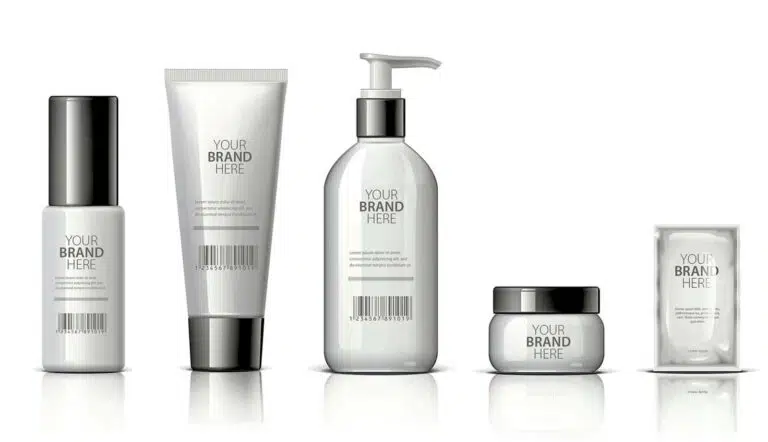
The fundamental difference between the two production styles is the level of customization. A custom-made formulation is a formula made from scratch per specific client requirements.
On the other hand, private label formulation makes use of existing formulas and modifies them to suit the brand’s needs.
Custom-made formulation:
A-Z customization
A custom formula will give a brand complete control over the product. The result it’s supposed to deliver, its ingredients, and even if the starting off-point is an industry-standard base formula or a spotless slate.
It is usually based on a concern that is uncatered to and allows a brand to fill in the gaps in the marketplace.
More control over the formulation
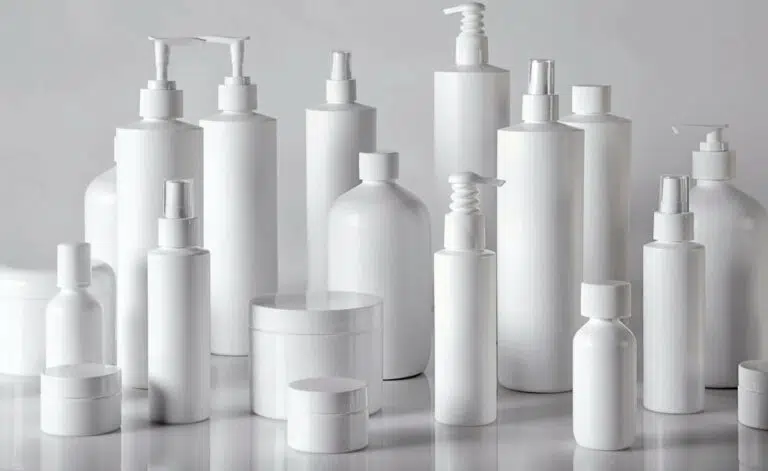
As a tailor-made formula is being created from scratch, it can be developed using specific ingredients, catering to particular concerns.
Kiehl’s Apothecary Preparations offers fully customized formulas for customers and retails for around $95.
Time-consuming production:
With all the bells and whistles of a custom formula, it has its fair share of cons. Being labor-intensive and time-consuming are only two of the many roadblocks that a brand may face when creating a custom product.
A rough estimate to develop a fully customized product is about a year. This includes research, development, testing, marketing, and launching.
Large minimum order quantities
Expensive:
Custom-made formulations can be extremely expensive considering the labor costs, time-consuming research and production, and large quantities. Custom formulations may seem attractive initially for businesses looking to get a first foot in the door, but they also require a hefty investment.
Private Label Cosmetics:
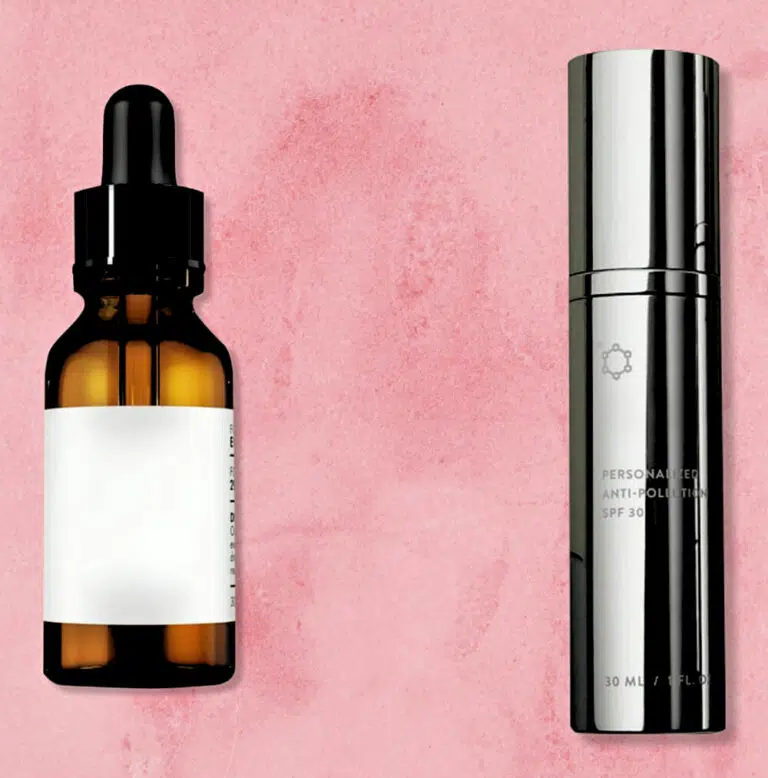
Limited customization and input
Private label formulations are usually pre-made in bulk and customized slightly per a brand’s requirements. The end product may differ slightly from its other variants in the market, but the base formula for these is usually the same.
The limitation only exists in the formula, as a brand can package its product. However, they may wish and stand out in the market.
An array of options
As private label manufacturers are abundant in the industry, each manufacturer has its specific share of formulations. The variety of manufacturers and their formulas opens doors for a vast pool of products to choose from and further customize.
Quick turnaround time
The manufacturers have base formulas prepared in stock. The turnaround for them to customize a procedure and have it ready for a brand to push to market is significantly lower. Consequently, the time for the product to arrive from the order placement date can be as low as a few weeks!
Small order quantities
Having pre-made stock enables manufacturers to offer the product in smaller quantities. The initial smaller amount proves highly beneficial for brands only looking to test the waters, have a limited budget, or wish to launch on a smaller scale.
Cost-effective

In the era where businesses strive to leave an incredible mark on the global stage, the adage, “Better packaging, better living,” now goes to “better packaging, great branding. Undoubtedly, packaging being the rallying cry for success in every business in 2023.
Keeping up with the above cosmetic packaging industry trends, you can transform your cosmetic brand and create a lasting impression on your customers. Thus ultimately, you will foster loyalty, authenticity, and recognition and stay ahead of the curve in the dynamic cosmetic industry.
Pricing
The idea behind opting for private-label manufacturing is to build a brand and profit. When selecting a supplier, brands need to ensure that the price they buy the wholesale product will leave enough margin for them when the final sale is made to the customer.
They can also consult with the manufacturer if they would supply a recommended price point for the product to be competitively priced for the market.
Turnaround time
Quick turnaround time is one of the most important aspects to consider, as when the business takes off, brands need to have a steady supply of products coming in. A lag in production from the manufacturing facility can reflect poorly on the brand if the customer’s demands are not promptly met.
MOQ requirements
Discussing the minimum order quantities that a manufacturer supplies are crucial. It’s better to experiment with a product with limited supply to understand its reception in the market. Brands should opt for a manufacturer offering lower MOQs, to avoid the risk of sitting on unsold inventory, especially in the beginning.
Level of customization
Private-label cosmetic manufacturers offer different levels of customization to accommodate their client’s preferences. The story of the formula alteration depends on the manufacturer’s production process, capabilities, and the product being developed.
The different customizations vary from fundamental changes (selecting pre-existing formulas and altering the branding and packaging materials) to formula customizations (client’s preference for color, fragrance, and texture). Before signing up with a manufacturer, the brand must find its requirements for product customization and choose accordingly.
Selection of products
Manufacturers that have a wide variety of product selections can help businesses grow in the future. With limited options, expanding a product line while working with the same facility might take a lot of work. Brands should partner with companies that offer an array of formula options in different sizes to understand customer demand and cater to it accordingly.
Availability of products
When working with an external supplier, managing and distributing stock can be challenging. Brands need to confirm with the manufacturer if they meet large order requirements if required and if out-of-stock situations aren’t expected.
Facility and product certifications

Private-label cosmetics usually come with product certifications and eliminate the hassle of a brand jumping through hoops. The manufacturer should have the required product and facility certifications that brands may wish to claim, for example, Vegan Certified, USDA Organic, Non-GMO Project Verified, and a GMP (Good Manufacturing Practice).
What do you need to do before launching your cosmetic brand?
Though starting a cosmetics brand with the help of private labels may seem easy, some considerations must be made.
Where is Your Main Market?
Identifying a niche is the first step. Is skincare cosmetics something that the brand would explore? Or is it makeup? What specific product type would they focus on within the more significant categories first?
As private label manufacturers offer plenty of freedom to implement ideas, the product should be created and launched strategically. Would the brand like to offer face products in its makeup line first, or would it instead begin with lip cosmetics?
Clarity is critical at this point.
Scouring competition:
Competitor analysis is mandatory for brands that want to set themselves apart. Research into the market can give them plenty of insight into what consumer behavior is, what products are being offered, what the customer demand is, and where the brand can come in to fill a gap.
Asking questions like the following can help brands carve a path out for themselves.
- What product is popular?
- What product is missing?
- Can we cater to a specific customer pain point?
- Can we target a particular demographic for a specific concern?
Bonus tip: A profitable way to do this is to offer a product with scarce availability but high demand.
Compatibility of Cosmetic Packaging
Most private-label-beginners have no idea that it’s important to make the stability test for the formula (ingredients) and the cosmetic packaging. Usually it takes about 90 days in 40℃ and 120 days in room temperature.
Meanwhile, there’re some technical tests need to do before making a decision on the cosmetic packaging you’re going to use on your personal care products.
- The Vacuum Test
- The Drop Test
- The Transportation Test
- The Twist Open and Twist Close Test
- The Spray Angle Test….
Most of the research and development can rely on BetterCHOIS, the new businesses can focus entirely on brand creation. You can put your efforts into branding, marketing, sales, logistics, etc.
Why are private-label cosmetics the better choice?
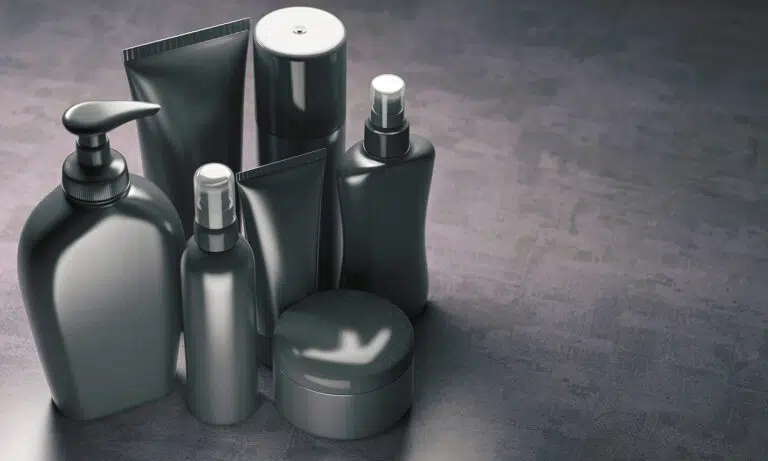
Private-label cosmetics are the best way for novices to get their foot on the potential cosmetic markets’ door.
Private-label cosmetics offer brands a foundation to build your beauty business. The research and the product are there, and you only need to add its personalized touch to it and start selling.
You’ll get the workable and affordable suggestion from BetterChois. Let’s us help your beauty business for your own private-label cosmetic products, which is Easy to start, Cost-effective, Offer quick product development lifecycle.